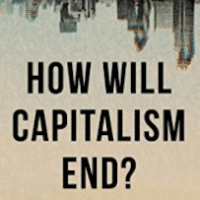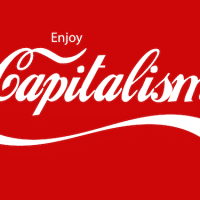-
Capitalism’s life source: the domestic and social basis for exploitation
Social reproduction theory (SRT) sounds quite intimidating, but the (rather grandiose) anthology of big words masks a relatively simple question: if capitalist production is fundamentally the production of commodities, and it is workers who produce such commodities, who ‘produces’ the worker?
-
The productive base as the ground of society and history: Marx’s base-superstructure theory
Base-Superstructure Theory (BST) is Marx’s guiding general theory, but is long misunderstood. Deeply embedded in a monumental corpus of system-challenging analysis, it has become lost in secondary interpretations with partial takes and opposed propagandas militating against coherent comprehension.
-
Capitalism, exterminism and the long ecological revolution
teleSUR spoke to Monthly Review editor John Bellamy Foster about climate change & the need to fight for an ecosocialist, revolutionary alternative to the profit-driven world capitalist system.
-
Concrete utopia
Where is Utopia today? Is this question relevant? One might argue that the term utopia is incongruous with the politics of our time, to say the least. Not only does the term ‘utopia’ indicate no place, when it found a place, it was mistreated and mutilated. What would be the place for utopian thinking in a world that is desperate to solve the accrued problems that it has created for itself? Would utopian thinking distract us from the real tribulations besetting the world?
-
The mall in the car
“Marketplace is not meant to be an in-vehicle digital billboard,” Santiago Chamorro, GM vice president of global connected customer experience [ROFL!], says to Automotive News.
-
The critique of value at Belshazzar’s feast
In the years since the 2008 economic crisis, renewed interest in Marx and Marxism has begotten interest in heterogeneous varieties that in one way or another violate the framework of the “traditional,” “official,” or “orthodox” Marxism that underpinned the workers’ movement in Europe and state socialism in the countries of the Eastern bloc.
-
Evgeny Pashukanis: Commodity-form theory of law
Whether one believes that law is provided by God (Natural Law), is created by human intellect (Positivism), a gendered institution perpetuating patriarchy (Feminism) or the maintainer of the status quo against marginalised groups (Critical Legal Studies), undergirding those beliefs is the assumption that law is autonomous.
-
The financial aristocrats will eat themselves
Even as far back as 1894, Karl Marx’s work saw that capitalism would devour its agents, writes DIEGO FUSARO.
-
Resilience is not enough
In “The Other Side of Resilience” Renata Silberblatt and Eamon Tewell (Progressive City, October 2017) raise some important questions about the focus on resilience as a way to respond to floods, droughts, wildfires, and climate change. But they don’t go far enough. It’s not just that resilience is more complex than it seems and has multiple meanings, as they point out.
-
The crisis in neoliberalism and its ramifications
The neoliberal model that has dominated mainstream politics and economics for decades is in crisis.… Mass dissatisfaction has joined with the growing realisation by the managers of the capitalist system that neoliberal policies are incapable of dragging the world economy out of the rut in which it now finds itself 10 years after the onset of the global financial crisis.
-
Review of Art and Value by Dr. Nizan Shaked
Art and Value: Art’s Economic Exceptionalism in Classical, Neoclassical and Marxist Economics reveals the irreconcilable differences between the Marxist economic definition of the term ‘value’ and its other uses in relation to the art object. It corrects the faulty assumption that rare or historical objects bear intrinsic value, symptomatic of capitalist worldview. Beech’s analysis of art’s value-form is critical to unpacking the double ontological condition of art as both an object of collective symbolic value and a hoard of monetary value, since the two operate in mutually exclusive spheres, yet function to constitute one another. The book can help us understand the capitalist sleight of hand that allows art to flicker between two forms of being, making profit appear as value, and value appear as significance (and vice versa), the toggling between the two facilitating the transfer of commonly held symbolic value in support of the individual accumulation of wealth.
-
The future of capitalism
Looking at the present and future system of capitalism, there is a vital crisis at the heart of it all. Democratic capitalism, starting out in the 18th century, has had its ups and downs but even Marx, Keynes, Rosa Luxemberg, and Kondratieff have all failed to establish theories to break out of the capitalist system.
-
Can we be alienated when we love shops
This week the MARX MEMORIAL LIBRARY explains how we are all objectified by our capitalist economic system.
-
Is fascism making a comeback? (Part 1)
Each month, the wonderful State of Nature blog asks leading critical thinkers a question. This month that question is Fascism.
-
Marx has the last laugh
Celeste Thorne reports on a unique cartoon and caricature competition marking the birth bicentenary of the great man.
-
The precariat under rentier capitalism
The Precariat under Rentier Capitalism Guy Standing We are in the midst of a Global Transformation, analogous to Karl Polanyi’s Great Transformation described in his seminal 1944 book. Whereas Polanyi’s Transformation was about constructing national market systems, today’s is about the painful construction of a global market system. To use Polanyi’s term, the ‘dis-embedded’ phase has been dominated by an ideology of market liberalisation, commodification and privatisation, orchestrated by financial interests, as in his model. The similarities also extend to today’s fundamental challenge, how to construct a ‘re-embedded’ phase, with new systems of regulation, distribution and social protection.
-
Not with a bang but with a (prolonged) Whimper
It is probably obvious to everyone that global capitalism is in dire straits, notwithstanding the brave talking up of output recovery that now characterises almost every meeting of the international governing elite. Even so, discussions of the end of capitalism still typically seem overstated and futile, not least because those hoping and mobilising for bringing in an alternative system are everywhere so scattered, weak and demoralised
-
Where has all the surplus gone?
Thanks to the release of the so-called Paradise Papers, and the additional research conducted by Gabriel Zucman, Thomas Tørsløv, and Ludvig Wier, we know that a large share of the surplus captured by corporations is artificially shifted to tax havens all over the world.
-
150 Years of Capital—with No End in Sight
For Capital’s explosive force to truly unfold, not only was education in general necessary, but also knowledge of the relevant economic and philosophical theories, in order to perceive not just the explicit, but also the implicit critiques.
-
The meritocratic myopia of Ta-Nehisi Coates
A question that might sound ludicrous to some: what do Trump and liberals have in common? Answer: a penchant for discussing anything other than class and capitalism—seriously.




















